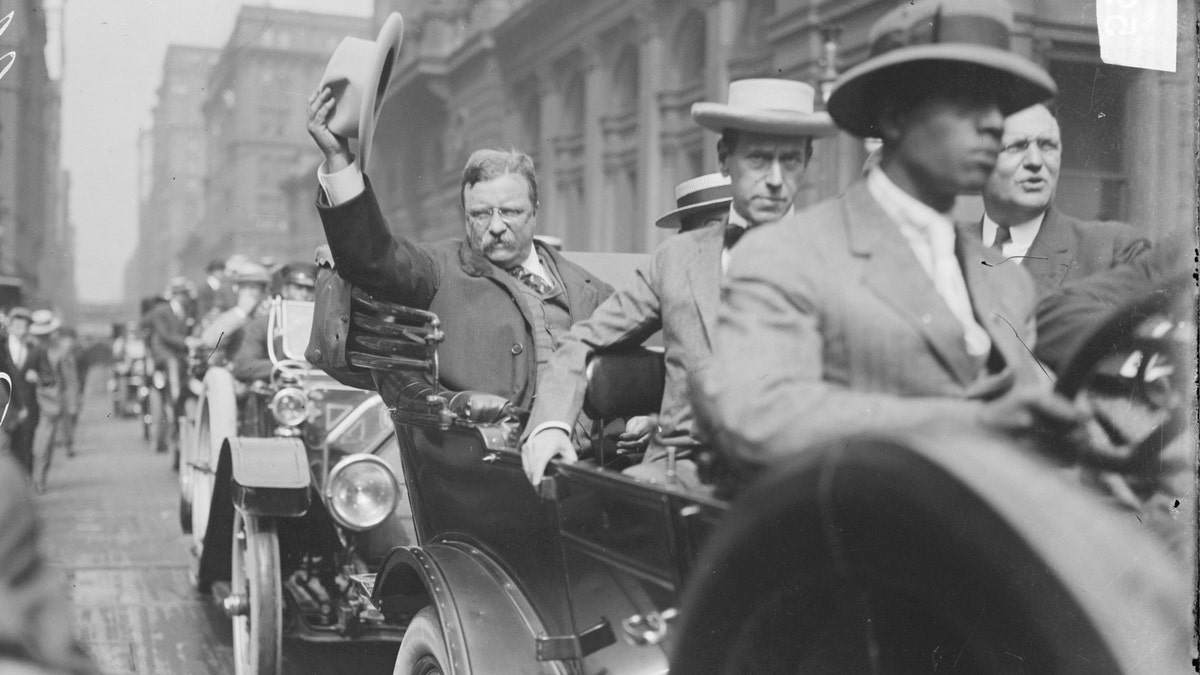
The party of unity, tradition and order is breaking apart like it did in 1912, when former President Theodore Roosevelt came back to challenge the re-election of his successor and fellow Republican, William H. Taft. They both lost. (AP)
The two men had not just been friends, but very close friends. They had held each other in the highest regard, finished each other’s sentences, admired each other in the truest and deepest of friendships. For years they had advanced each other’s career, hoped for the other’s greatest success, written regularly to express their admiration and their regret at being apart and supported each other in every way, personally and politically.
But then, in 1912, former President Theodore Roosevelt and the sitting president, William Howard Taft, suddenly became bitter rivals in a titanic battle for the Republican nomination for president.
Four years earlier, Roosevelt had handpicked Taft to succeed him, helped clear the field for his nomination and stumped the country for his election. But by 1911, TR had soured on Taft, believing he was insufficiently committed to Roosevelt’s progressive vision and not up to the demands of the office. In truth, TR missed the presidency and regretted his decision not to seek a second full term.
Roosevelt swept nine of the 13 Republican primaries in the spring. But most national delegates were chosen in state conventions back then, and Taft prevailed at these with the backing of party loyalists. These gatherings, however, spawned a raft of credentials challenges, and some produced competing delegations of Roosevelt and Taft men claiming to have won the same state.
Taft’s managers were firmly in control of the Republican National Committee that would resolve the disputes, and that enabled them to present a temporary roster that produced a Taft majority on the floor of the national convention in Chicago. It showed its strength by narrowly prevailing in a test vote on the selection of the convention’s temporary chairman.
By Friday, it was clear even to Roosevelt that he would lose, albeit by a handful of votes, when the delegates finally got around to the nomination itself. So when the convention took up the question of competing delegations from California’s Fourth District, TR’s floor spokesman – Frank Heney – declared that if the Taft forces seated their pair of delegates and not Roosevelt’s men, the president “will be guilty of treason against the law.” California’s governor, Hiram Johnson, followed, telling the convention: “The question today is, shall the people rule?”
The Roosevelt supporters rose to their feet, chanting, “Yes, yes, let the people rule.” But despite their spirited demonstration, Taft’s men prevailed by two votes.
Angry at their treatment, Roosevelt’s progressive followers — party leaders, governors, senators and former Roosevelt administration officials — caucused. They agreed to arrive at the convention the next day, oppose the Taft credentials decisions and declare they would act on their conscience. Then they would announce they were present and not voting on all other issues before the convention, including the nomination of the GOP ticket. Following the convention, they would reconvene and chart a different course for the election.
That night, Roosevelt appeared in a hotel window to respond to the thousands on Michigan Avenue who were chanting his name and cheering for him to address them. “My friends,” the former president declared, “my hat is in the ring and will be in stronger than ever.”
This split in the Republican Party soon led to the creation of the Progressive Party, which nominated TR, and an epic three-way battle among Taft, Roosevelt and the Democratic nominee, New Jersey Gov. Woodrow Wilson. With the Republicans divided, Wilson won the White House with 42 percent of the vote. Their friendship sundered, Roosevelt ran second with 27 percent, while Taft carried only two states – Utah and Vermont – with 23 percent.
Politics can create powerful friendships, but it can also lead to powerful rivalries. The enmity between these one-time friends cost the GOP the White House.
Author's note: For more information check out Lewis Gould's "Four Hats in the Ring: The 1912 Election and the Birth of Modern American Politics" and Geoffrey Cowan's "Let the People Rule: Theodore Roosevelt and the Birth of the Presidential Primary."
